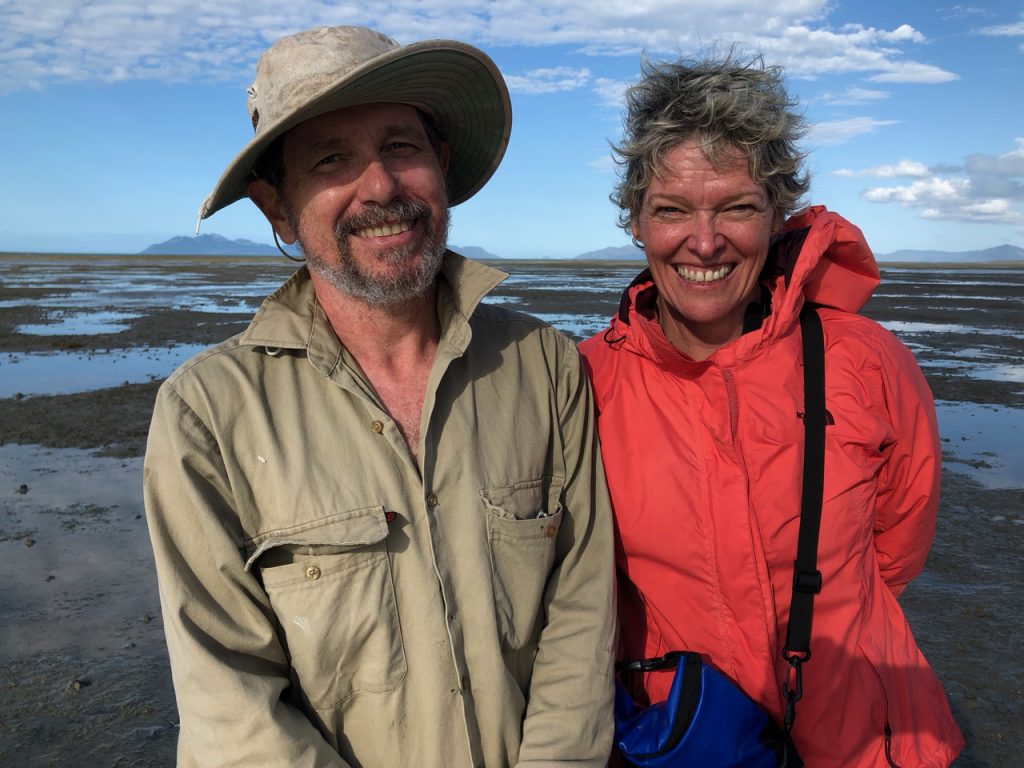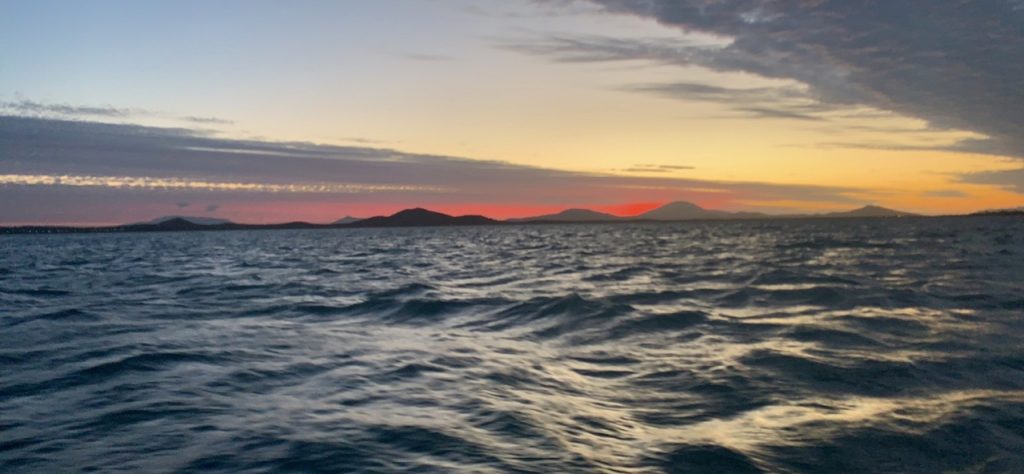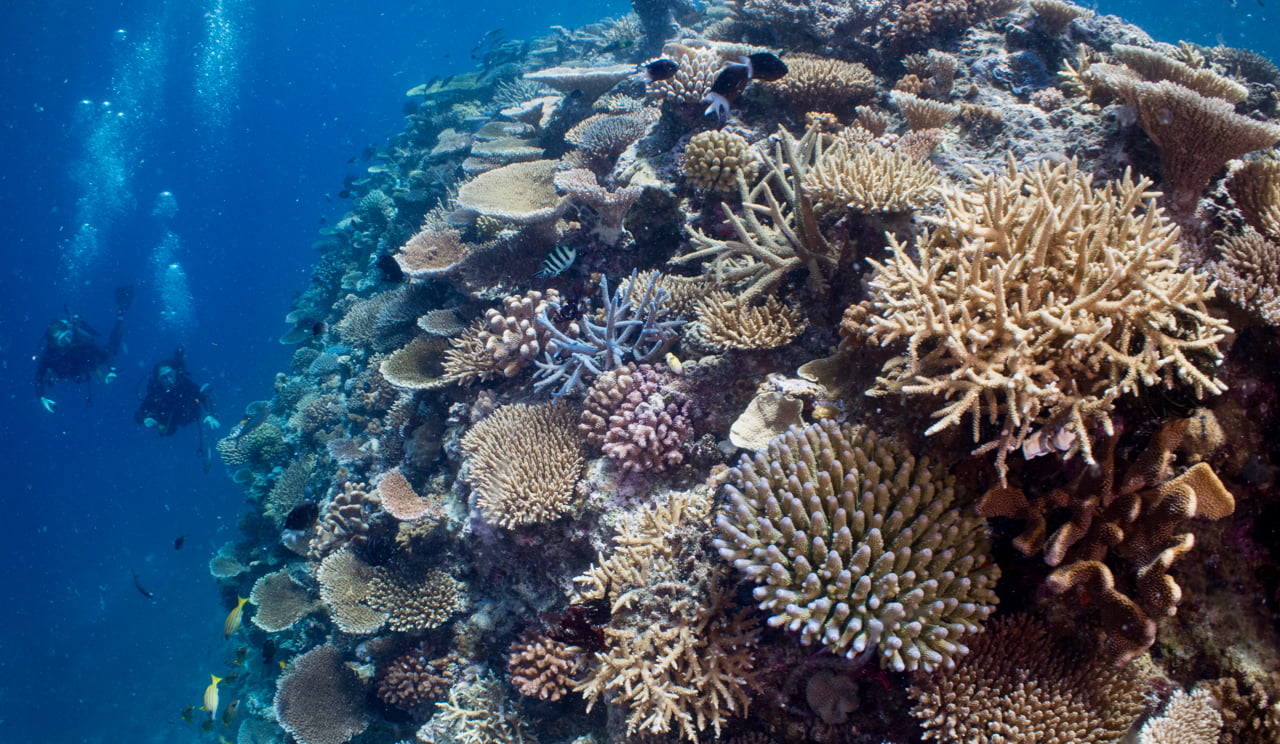Many of us know that there is little to no quality assurance of much of the environmental science that comes out of universities across the Western world. Yet academics are the new demigods, revered by so many while often just making stuff-up to fit the zeitgeist. So many within the university system that have tried to speak-up have been silenced, and then sacked.
Peter Ridd ‘s much publicised sacking has shown some of the tactics routinely used. And he lost in the Federal Court last week.
But again, he is not giving-up. Now is your opportunity to support him in his push to show the injustice through a hearing at the High Court of Australia. You can donate here:
Yes, Peter is appealing the decision of the Federal Court to the High Court of Australia.
The case is of enormous public importance, for free speech and also the traditions of the scientific method. As the Chairman of the IPA, Janet Albrechtsen, wrote in The Australian newspaper on 25 July 2020:
Remember that Ridd wasn’t querying the interpretation of Ovid’s Metamorphoses. He was raising questions, in one particular area of his expertise, about the quality of climate change science. One of the fundamental challenges of our generation is to get the science right so we can settle on the right climate change policies. JCU told Ridd to keep quiet, then it sacked him. And a court has endorsed its actions.
JCU’s conduct, and the court’s decision, has sent intellectual inquiry down the gurgler in the 21st century at an institution fundamental to Western civilisation. Is that to be legacy of JCU’s vice-chancellor Sandra Harding? And what oversight has JCU’s governing council provided to this reputational damage, not to mention the waste of taxpayer dollars, in pursuing a distinguished scientist who was admired by his students?
Following this decision, no academic can assume that an Australian university will allow the kind of robust debate held at Oxford University in 1860 between the bishop of Oxford, Samuel Wilberforce, and Thomas Henry Huxley, a biologist and proponent of Darwin’s theory of evolution.
The Historical Journal records how this legendary encounter unfolded: ‘The Bishop rose, and in a light scoffing tone, florid and fluent he assured us there was nothing in the idea of evolution: rock-pigeons were what rock-pigeons have always been. Then, turning to his antagonist with a smiling insolence, he begged to know, was it through his grandfather or his grandmother that he claimed his descent from a monkey? On this Mr Huxley slowly and deliberately arose. A slight tall figure stern and pale, very quiet and very grave, he stood before us, and spoke those tremendous words … He was not ashamed to have a monkey for his ancestor, but he would be ashamed to be connected with a man who used his great gifts to obscure the truth.’
Not for nothing, Ridd’s lawyers submitted this example of intellectual freedom during the first trial. In sacking Ridd, and to win in court, JCU had to argue against the means that seeks the truth — intellectual freedom.
In deciding whether to grant special leave for the appeal, the High Court will consider whether the case involves ‘a question of law that is of public importance’.
The Ridd matter easily meets this threshold. It would be the first time the High Court has been called upon to consider the meaning of ‘academic and intellectual freedom’, which is used in enterprise agreements covering staff at almost all Australian universities.
The court’s decision will therefore have very real consequences in terms of university governance, and the extent to which administrators tolerate controversial (and, often, commercially inconvenient) opinions from the professoriate. (Now I’m quoting from my colleague Gideon Rozner, published in today’s The Australian.)
Should ‘intellectual freedom’ be limited by the whims of university administrators, as the university is arguing? Or should it be wide enough to allow for the kind of controversial, but honestly held opinions for which Dr Ridd was ultimately sacked?
The Federal Court’s answer to that question is deeply disturbing. In its judgment last week, the majority seemed to suggest that free speech on campus is past its use-by date.
‘There is little to be gained in resorting to historical concepts of academic freedom,’ claimed justices Griffiths and Derrington in the majority judgement. They were quoting from an academic textbook outlining ‘a host of new challenges’, like ‘the rise of social media’ and ‘student demands for accommodations such as content warnings and safe spaces’ as reasons for doing away with the concept of intellectual freedom.
While I am not suggesting the judges acted improperly, it is worrying that the boundaries of free speech should be defined in this way.
Intellectual freedom and free speech are not antiquated notions. They are ancient and important rights through which we may get closer to the truth. And there will always be a percentage of us that care about the truth, that seek it out regardless of the consequences.

****
About the picture of the corals on the cliff-face on the edge:
Beyond the corals, beyond the mudflat, and across the coral sea is Australia’s continental shelf that drops in places, 2,000 metres to the ocean floor.
Much of that edge is covered in coral, growing vertically so invisible to aerial surveys.
I SCUBA-dived this edge in January 2020, when the photograph at the very top of this blog post was taken. Yes, there is still so much coral and it is so beautiful. Much of it is in shades of beige.



 Jennifer Marohasy BSc PhD is a critical thinker with expertise in the scientific method.
Jennifer Marohasy BSc PhD is a critical thinker with expertise in the scientific method.

So the Beaks don’t rate historical precedents for free speech very highly, yet history is the shared library of human experience.
A higher court should make amends but it’s a pity only lawyers gain from the drawn out process
My wife & l are on my way back from Port Douglass & Cairns. No dives this time (been doing this since 1983) but plenty of snorkeling.
Coral & fish brilliant on the outer reefs we visited, and even more spectacular around Fitzroy Island, where the diversity and quality of both hard & soft corals was better than l’ve ever seen before.
Some boat crews are promoting the global warming theme regarding bleaching, however we saw very little of bleaching. As has been our experience, most of the damaged corals appears to be due to cyclones, and crown of thorns!
Cheers
Mike
It is sad that biological scientists do not recognise that corals grow better in warmer conditions as evidenced nearer to the equator but it is even sadder to see “educated ” Justices quoting Twitter feed as the basis of their ruling on the basic right of freedom of speech. Bring on the High Court challenge.
Who would not agree with Peter Ridd’s right to academic freedom and the fundamental right of free speech and the pursuit of truth. Most certainly not any judge I know nor I am supposing, James Cook University.
I wish the good professor well in his further pursuit of his cause celebre, but alas, the issue here is about industrial law and the manner by which that cause has been pursued. As the primary judge observed (at 164 FCAFC 123 [2020]) “a course of conduct is not founded upon the underlying reason for the conduct, but upon the behaviour that constitutes the conduct.”
Belief in the certainty of one’s contentions requires the academic rigour and astuteness not to allow one’s opponent to succeed by shooting the messenger.
Peter Ridd is indeed a hero! If he was destined in life to do something really great it is this.
A (hopeful) win in the High Court will set Australian Tertiary Education back on the right track again after it has been gradually hijacked over the last few decades by the progressive group-think brigade.
Just on Mike’s comment.The latest paradigm about the reef is that every change is caused by climate change and we are causing climate change.
One of those ‘changes’ is the emergence of hoards of crown of thorns starfish which gobble up parts of the reef.
I had the opportunity to ask someone who worked on the reef for an opinion.
It was that the COT’s was a natural phenomenon and that it was part of the reef cycle.
Attempts to destroy them would ultimately change the reef because they were part of the cycle.
However I noticed recently that one of the assessments for reef funding says COT’s blooms are caused by climate change and run off so should be culled out.
Farming must be curtailed.
This is opposed to the data collected by Prof Ridd that showed particulates from river run off were swept away by the ocean currents to a vanishingly undetectable state.
But once cobbled to climate change, anything is possible.
There is a desperate need to sort out reef science and to verify it before we spend millions on changing natural processes.
I note that a whole lot of people from the UN are about to judge us on the reef.
Its time we looked at their own accomplishments to see what their judgmental standards actually are derived from.
In reply to your comment referencing the UN as judge on our reef, what’s the bet they will not talk to Jennifer or Peter Ridd. And nor will they talk to those who have been diving/snorkeling the GBR. Whilst near Opal Reef off Port Douglas, we were told that the water temperature was 24C, and for this time of the year it should be 21C. It was actually 22C, and in fact in July (on this area of the reef) I’ve experienced 20C.
I chose not to challenge the crew member whilst he passed on his somewhat biased information. How do you tell someone that they are sabotaging the very industry that feeds them.
Cheers
Mike
> “In its [Federal Court] judgment last week, the majority seemed to suggest that free speech on campus is past its use-by date.”
It’s very, very scary. These people (ie. Court majority) have now inserted into law the notion that there is no objective truth. It is all opinion, a construct.
The attack on the physical sciences grows. Jordan Peterson was one who understood this was likely. I have expected it for quite some years – it’s a lot easier to believe nothing is real than to actually practice the scientific method. Through the Looking Glass with Alice.
One can only wonder how these people regard medical diagnoses of their own ailments. If one collects enough “second” opinions, there will be nothing wrong at all.
Quality assurance of scientific data and its implications are major no-go areas for the politically inspired global warming alchemists because any hint of truth in what these charlatans have been promoting mainly for personal profit, will undermine their spurious arguments. The members of the legal profession who have sold their legal experience to support the JCU argument instead of unearthing the truth must now be considered to be nothing more than cheap-rate legal market traders not fit to be working in the legal profession at any level.
“The raw beauty is here for all to touch and see… to bring us all joy.”
It is distressing to see the starkly obvious inconsistencies in our legal system, highlighted by this latest unfortunate decision.
One Court that hears all the evidence (in this case) found in favour of Dr Ridd on every count.
On appeal the Federal Court has now reversed every one of these findings, based it appears, on an apparently different interpretation of a clause Dr Ridd had no option but to sign if he wished to work at JCU.
While such clauses might be reasonable in one sense, it is simply not appropriate or reasonable when they are used in this manner to stop, as they have, reasonable questioning of clearly doubtful claims being made by some representatives of the University.
Universities are meant to be places of learning, questioning and freedom of speech.
We learn by continually thinking, testing and observing to arrive at an improved level of understanding. It is a process to attempt to ascertain the truth, especially under complex and dynamically changing conditions.
It is the method by which mankind has so dramatically improved his circumstances from those that previously prevailed for many, many thousands of years.
This decision, if it is upheld, means that we as individuals and therefore as a society, can no longer question as a normal part of this process, any of the accepted beliefs of the day.
That would be intolerable.
I believe this is a situation that we must not, cannot, allow because it attacks the very heart of this fundamental methodology, essential for the continuing benefit of future generations of our species.
This future now depends on the judgement of the High Court of Australia and a subsequent reversal of this unfortunate burgeoning, counterproductive trend.